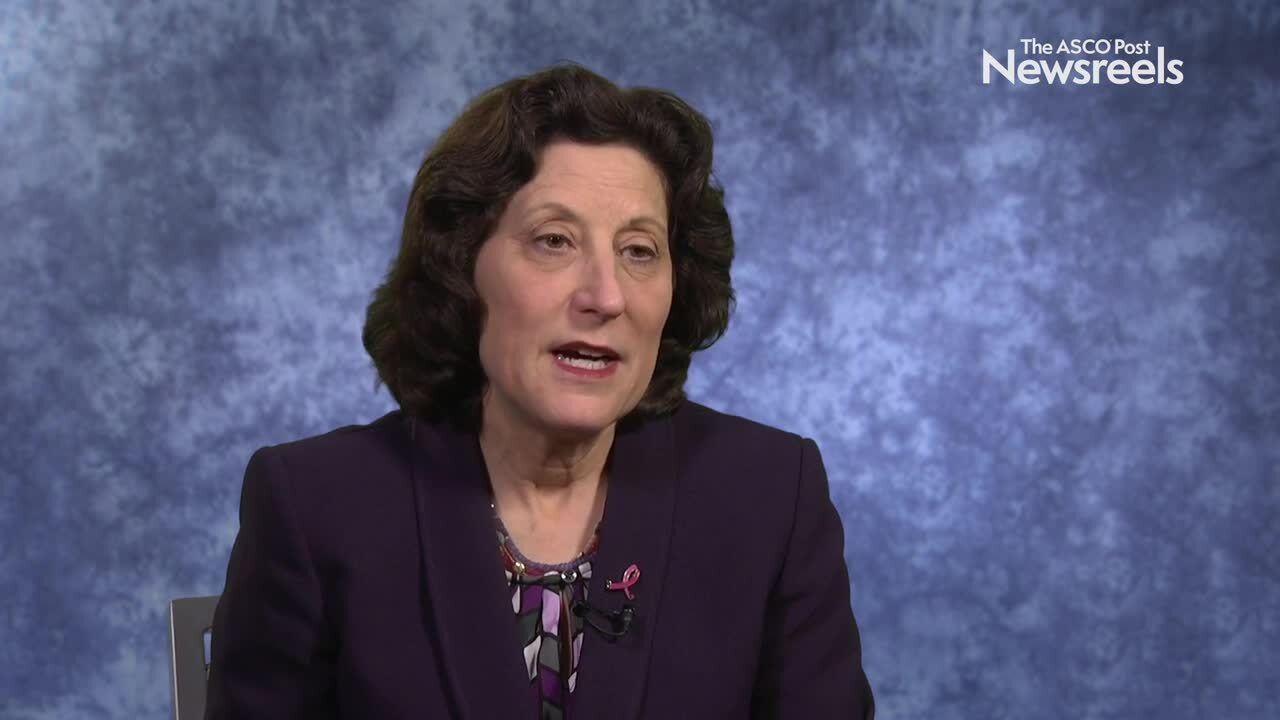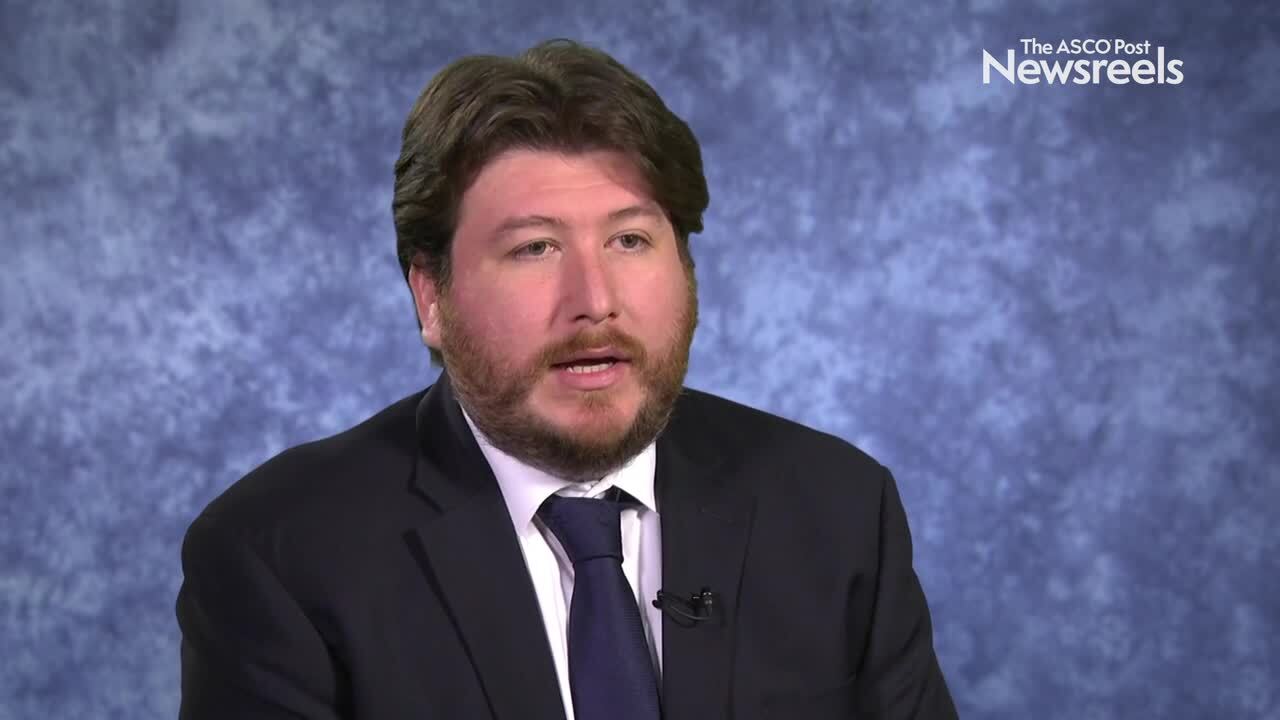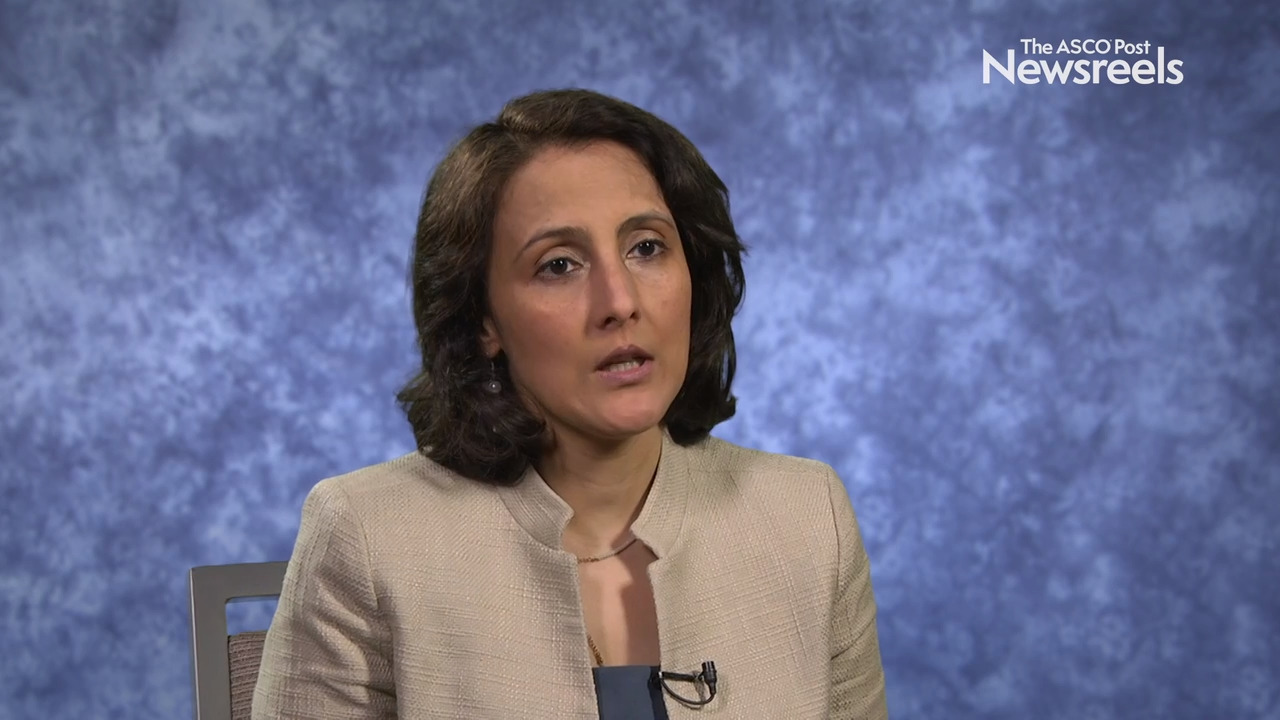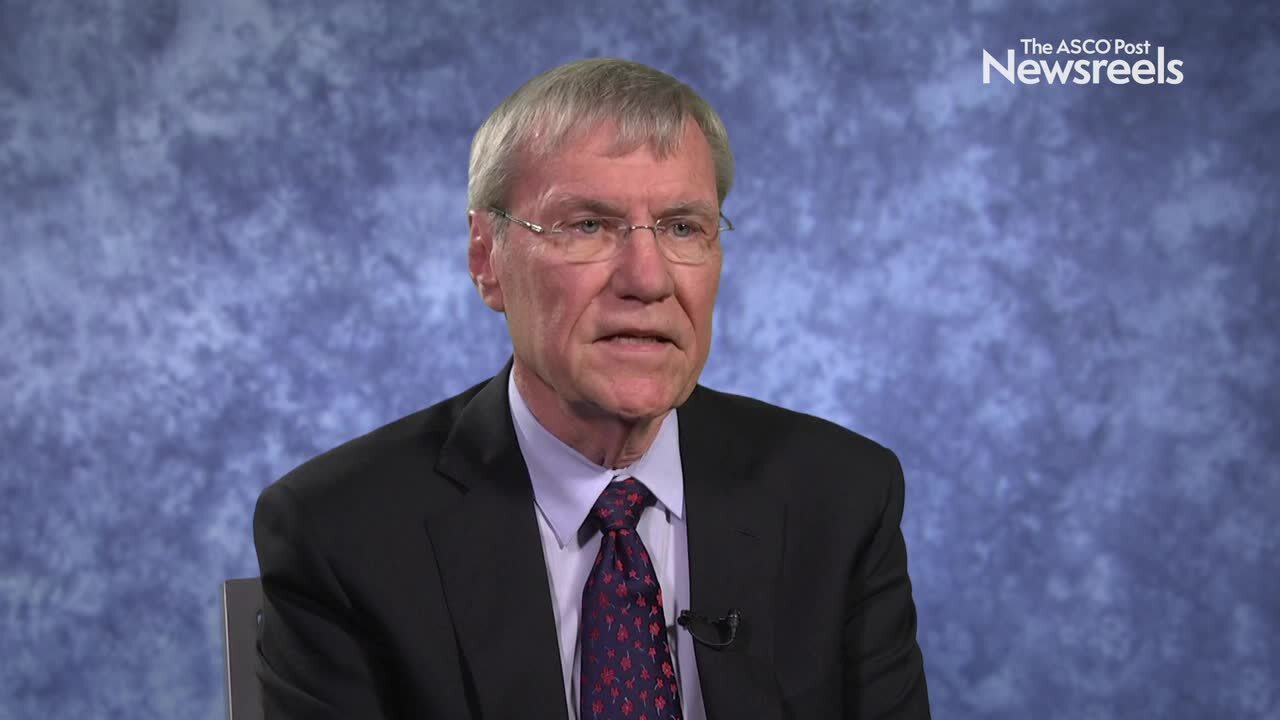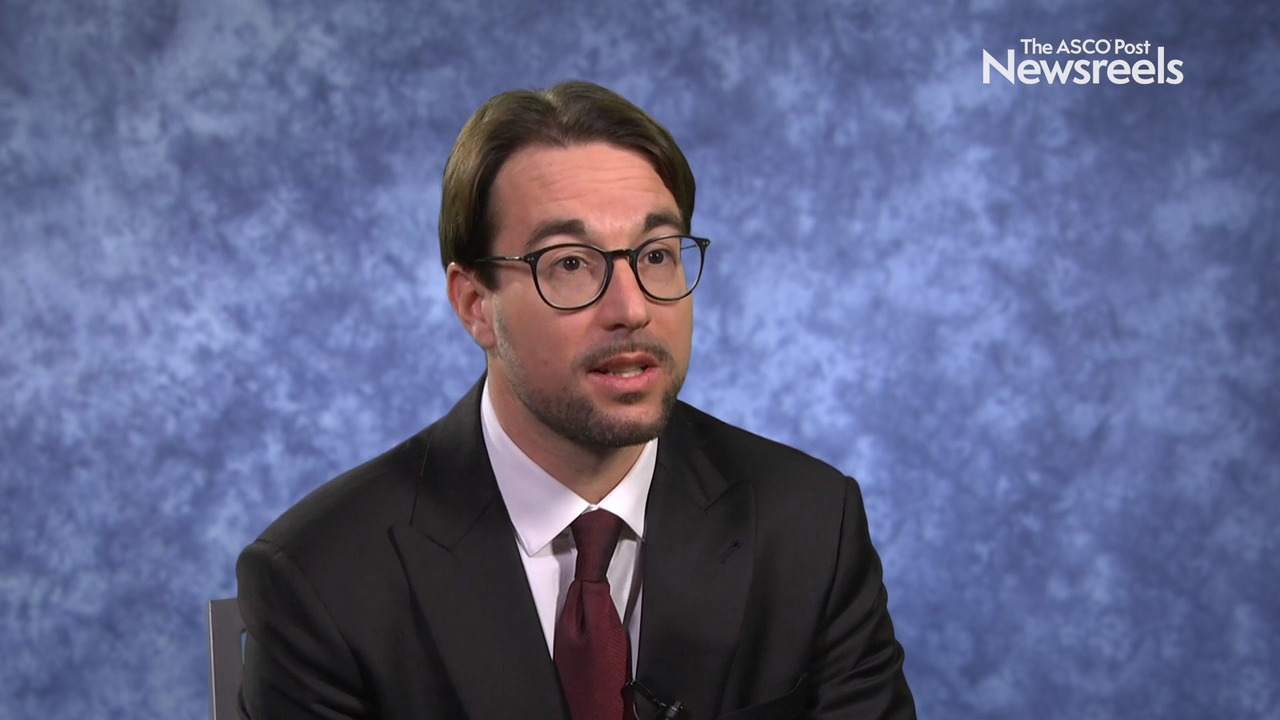Sara M. Tolaney, MD, MPH, on HER2-Positive Breast Cancer: ATEMPT Trial on T-DM1 vs Paclitaxel Plus Trastuzumab
2019 San Antonio Breast Cancer Symposium
Sara M. Tolaney, MD, MPH, of Dana-Farber Cancer Institute, discusses phase II findings on patients receiving T-DM1 monotherapy as adjuvant treatment for stage I HER2-positive breast cancer, a regimen associated with few recurrences in the study population (Abstract GS1-05).
Hope S. Rugo, MD, of the University of California San Francisco Comprehensive Cancer Center, discusses a retrospective analysis on the effectiveness of the VENTANA PD-L1 SP142 assay, the Dako 22C3 assay, and the VENTANA SP263 assay as predictors of response to atezolizumab plus nab-paclitaxel in patients with metastatic triple-negative breast cancer (Abstract PD1-07).
Gerardo Antonio Umanzor Funez, MD, of Liga Contra El Cáncer, discusses phase III findings on intravenous (IV) paclitaxel and oral paclitaxel plus encequidar (a novel P-gp inhibitor), the first orally administered taxane regimen shown to be superior to the IV formulation in terms of response and survival with less neuropathy (Abstract GS6-01).
Priyanka Sharma, MD, of the University of Kansas Medical Center, reviews new phase III data on adding oral fluoropyrimidine to adjuvant endocrine therapy, the current standard of care, in the setting of hormone receptor–positive, HER2-negative primary breast cancer (Abstract GS1-09).
Rowan T. Chlebowski, MD, PhD, of the Lundquist Institute at Harbor-UCLA Medical Center, discusses the long-term influence of using estrogen plus progestin or estrogen alone on breast cancer incidence and mortality (Abstract GS5-00).
Icro Meattini, MD, of the University of Florence, discusses study findings that showed the less-invasive partial-breast irradiation using intensity-modulated radiotherapy after surgery may be an acceptable choice for patients with early breast cancer, as it is cost-effective, safe, and efficacious when compared with whole-breast irradiation (Abstract GS4-06).
